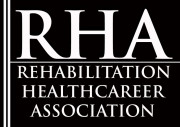CCEPT Certified Clinical EKG Phlebotomy Technician
This course is designed for students who want to excel their career in both Phlebotomy and EKG
COURSE PREREQUISITE(S): High School Diploma , GED , Entrance Test
PROGRAM DURATION: 4-8 weeks
COURSE OUTLINE :
The goal of this course is to advance the knowledge of the student through the information offered in the lessons.
The topics are:
PART 1 PHLEBOTOMY 2-4 Weeks
1.) Introduction to phlebotomy
This lesson introduces the student to the actual definition of phlebotomy. You will learn what a phlebotomist does and the qualities needed to be a good phlebotomist. Learn the importance of customer service skills and medical terminology commonly used in the field of collecting blood specimens.
2.) Adult venipuncture
Learn the procedures required to perform an adult venipuncture. Learn the importance of properly identifying a patient, how to verifying test requirements, how to choose a good venipuncture site, tricks of the trade in locating hard to find veins, sites to avoid when performing a venipuncture, order of draw and much more.
3.) Venipuncture and children
Learn the importance of good communication, proper holding and venipuncture techniques, the criteria for blood sample rejection and how to avoid it,what hemoconctration is and much more.
4.) Skin punctures on babies
Learn the age under which a venipuncture should be avoided, where to perform a heel stick and the danger of choosing the wrong spot, composition of skin puncture blood, things that can go wrong with a specimen how to avoid hemolysis and much more.
5.) The finger stick
This lesson discusses the advantages and disadvantages of a finger skin puncture, why hemolysis is more likely, who are good candidates for a finger stick, how to collect an optimal sample, order of draw for micro collection and much more.
6.) Arterial blood gasses
This lesson discusses who should perform an arterial puncture, composition of arterial blood, hazards in collection, arteries available to draw from, the Allen test, procedures and much more.
7.) Special tests on babies
You will learn about capillary blood gasses, bilirubin, newborn screening and much more.
8.) Special tests on adults and children
This lesson discusses blood cultures, the two-hour postprandial, the glucose tolerance test and point of care testing.
9.) Types of isolation
You will learn about infection control, types of isolation, standard precautions, transmission based precautions, protective or reverse isolation, proper hand washing procedures and blood collection procedures in isolation rooms.
10.) Legal issues, safety precautions and OSHA.
This lesson discusses possible patient reactions, procedure for accidental needle sticks or exposure, OSHA standards, Material Data Safety Sheets, hazard identification, chemical and radiation exposure, waste disposal, safety guidelines and much more.
PART 2 ELECTROCARDIOGRAPH (EKG) 2-4 Weeks
1. Introduction to Electrocardiography
2. EKG Equipment and Supplies
3. Medical Terminology
4. Anatomy of the Heart
5. Physiology of the Heart
6. Anatomy of the Cardiovascular System
7. Physiology of the Cardiovascular System
8. EKG Interpretation
9. Vital Signs
10. Specialized Procedures Related to Electrocardiography
11. Safety Considerations
NOTE FOR STUDENTS :-AT THE END OF THE PROGRAM, THE STUDENT WILL BE ELIGIBLE TO SIT FOR NATIONAL HEALTHCAREER ASSOCIATION CERTIFICATION (NHA) EXAM.







